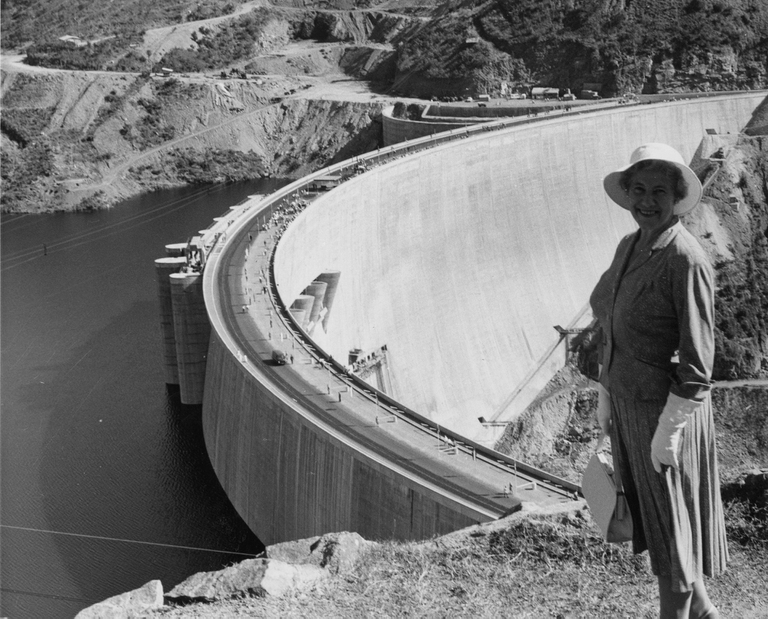https://www.lifegate.it/zimbabwe-crisi-climatica
- |
Animals torn from the land to which they belong.Elephants sedated and lifted upside down, attached to small cranes.Antelopes caged and loaded onto trucks that will take them away from their home.We are in Zimbabwe, but we are not faced with yet another scene of predation by poachers.There is the climate crisis at the basis of this latest violence against local fauna, threatened by drought which dries up the rivers and dries up the land.
The climate crisis like poaching
Zimbabwe transferred over 2,500 animals wild from the Save Valley Conservancy, located in the south of the country, to three reserves in the north, in the Sapi, Matusadonha and Chizarira parks.A project is underway in these areas faunal repopulation after years of decimation caused by poaching and facilitated by the proximity of Lake Kariba and the Zambezi river, whose biosphere is still able to resist the extreme drought that has brought the southern parks to their knees.The operation has been called "Rewild Zambezi" and involves the movement of various species threatened by the lack of rainfall in recent months, which has hardened the soil and dried up the rivers to the point of making the reserve almost uninhabitable.They will be around to pay the price for the effects of the climate crisis 400 elephants, 2,000 impalas, 70 giraffes, 50 buffaloes, 50 wildebeests, 50 zebras, 50 antelopes, 10 lions and a pack of 10 wild dogs.
It was the park that produced the documentation necessary for the transfer of the animals.In an interview with the Associated Press Tinashe Farawo, spokesperson for the national park management authority, declared that the operation was necessary to avoid a real disaster, since the climate crisis has now replaced poaching among the plagues that plague African fauna:“We are doing this to relieve the pressure.For years we have fought poaching and, just when we are winning that war, climate change has emerged as the biggest threat for our wildlife,” Farawo said.
The historical precedent:Operation Noah
The conditions that will allow the deported animals to survive in the north depend largely on a similar episode dating back to the 1960s.Lake Kariba, in fact, is an artificial work created following the construction of the lake of the same name dam, which was commissioned in the colonial era by the British Empire to exploit the great energy potential of the Zambezi.On that occasion the government ordered Zimbabwe's first major wildlife transfer, theOperation Noah, during which they were moved more than 5,000 animals.On that occasion the fauna was saved by another modification of the habitat by man, which caused a sharp rise in the water level.

Drought is not the only emergency
Alongside increasingly extreme climatic conditions, Zimbabwe must also face the problem of elephant overpopulation.Over the last thirty years, the protection of elephants has represented a crucial, at times dramatic, issue regarding wildlife protection projects in Africa.An example is the depopulation that occurred in Central Africa, where specimens have decreased by 86 percent.
Nonetheless, the stringent measures adopted by the governments of countries such as Zimbabwe and South Africa have made it possible not only to stop the decline, but also to reverse the demographic curve, allowing a rapid increase in numbers.According to the most recent estimates, the number of elephants currently present in Zimbabwe is 100 thousand units.In 2014, the year of the last census, there were 84 thousand specimens, double the 45 thousand that would constitute the maximum capacity foreseen for the surface area of the country's parks.The elephants have grown, but the space available to them has not.

Over time, the available surface area has decreased to make room for infrastructure and new settlements:“Many of our parks are becoming overpopulated and there is little water and food.The animals end up destroying their habitat and invading human settlements, becoming a danger to themselves and giving rise to incessant conflicts,” concluded Farawo.Elephants grow, the land at their disposal does not, on the contrary it becomes impoverished and becomes infertile, unsuitable for life and survival.And this deportation, while saving them from certain death, seems to be yet another temporary move in an emergency that requires long-term, definitive solutions, a very different approach on the part of those who have the power to decide.
